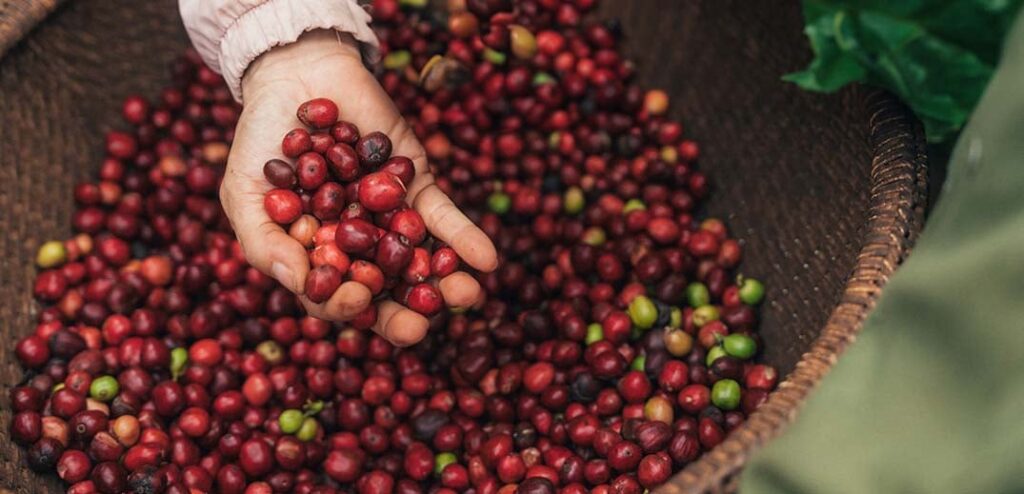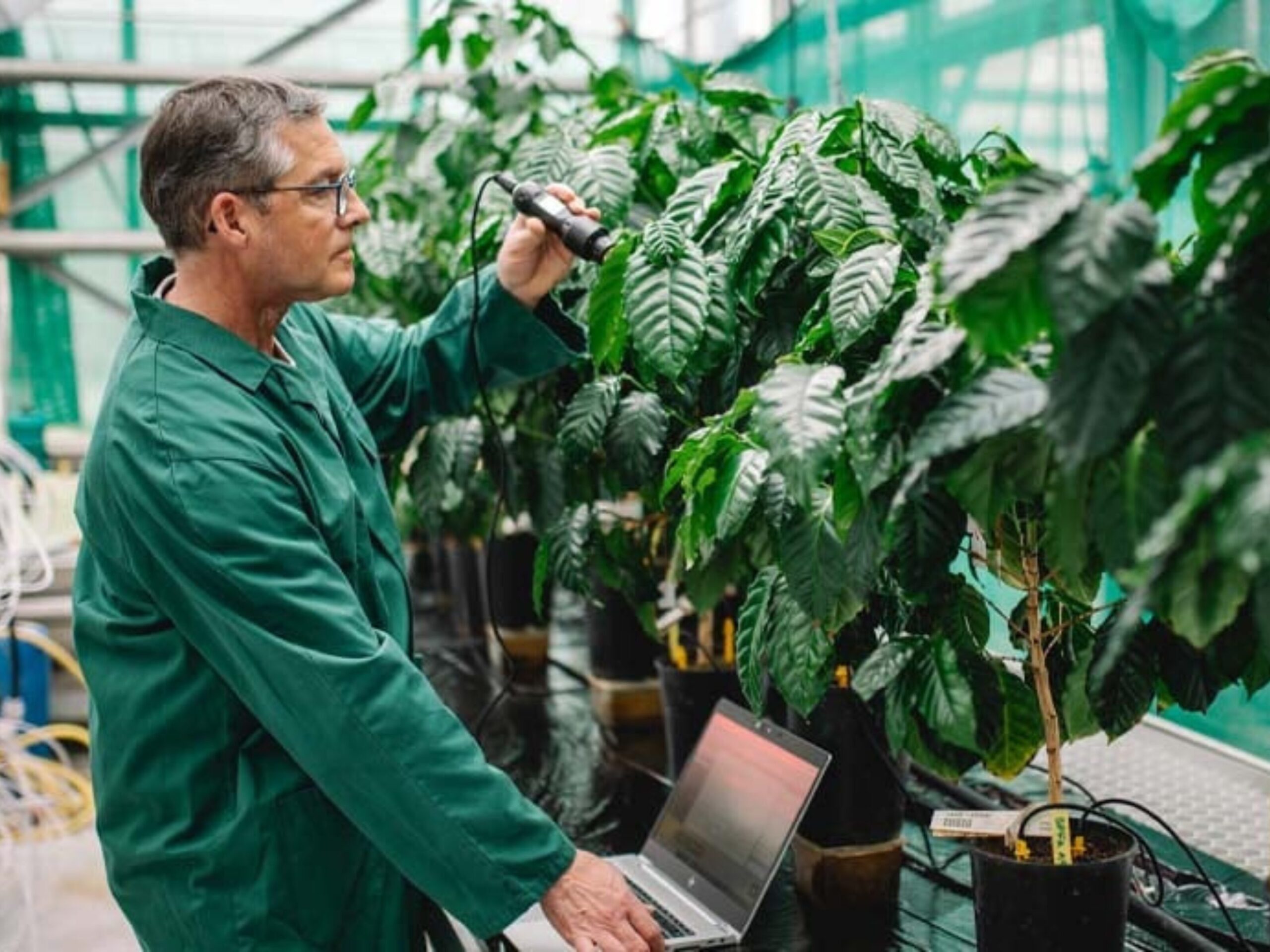
Nestlé has unveiled a new high-yielding arabica coffee variety in Brazil, which is resistant to the impacts of climate change.
In its bid to make the global coffee supply chain more resilient, Nestlé has developed a new arabica variety that has a high yield and is thus linked to lower greenhouse gas emissions.
Called Star 4, the new variety has been developed by the CPG giant’s agricultural science team via traditional breeding methods in Brazil, the top producer of coffee globally.
It was selected for its resilience to coffee leaf rust, a fungal disease that decimates crops, has previously caused an epidemic that strained the global supply, and is worsening with climate change. The arabica variety is said to possess the “characteristic taste of Brazilian coffee”.
“We are proud to make another important step towards resilient coffee supply chains, ensuring that consumers can continue to enjoy great coffee in the future,” said Jeroen Dijkman, head of Nestlé’s Institute of Agricultural Sciences.
Why Nestlé developed a climate-resilient coffee variety
It may be the second-most consumed drink in the world (after water), but coffee is in trouble.
Arabica makes up 70% of the world’s coffee supply, but the climate crisis has pushed it to the brink. It is now a species that could become extinct in the next 60 years. And it’s not just arabica – 60% of the world’s coffee species are under threat.
Meanwhile, the area suitable for growing arabica – roughly forming a ‘belt’ between the tropics – is shrinking, and could be cut in half by 2050. Further research has revealed that due to climate hazards becoming more frequent thanks to extreme weather, coffee crops will suffer from lower yields and skyrocketing prices.
We’re already seeing the effects of this. Arabica futures have gone up 34% since the start of the year in New York, reaching $5,556 per tonne last week. This is a trend being seen across the globe, and supply chain pressures mean prices are unlikely to drop until mid-2025, according to Italian industry giant Lavazza – in the UK alone, a bag of coffee could cost you 20-25% over the next year.
Nestlé’s innovation is essential, especially since it is the world’s largest CPG coffee brand, capturing 22% of the retail market. Nespresso, Nescafé and Nescafé Dolce Gusto all fall under its coffee portfolio. Nestlé also owns Blue Bottle Coffee and has exclusive distribution rights for Starbucks’ Coffee at Home range.
“The new variety is characterised by its larger bean size and coffee leaf rust resistance,” said Dijkman. “Our field trials have demonstrated that, using similar inputs, the yields of Star 4 are substantially higher than the two most used Brazilian local varieties, which reduces its carbon footprint.”
Nestlé said its development of locally relevant solutions like Star 4 contributes to its Agriculture Framework, which promotes sustainable farming and responsible sourcing. Under its Nescafé Plan 2030, it plans to cut its coffee production emissions in half and source at least 50% of the crop through regenerative agriculture.
New innovations hope to tackle coffee’s climate problem
 Courtesy: Nestlé
Courtesy: NestléThe company attributed the new variety’s lower emissions to the greater yield potential, enhanced plant productivity, and improved farming methods.
“Optimising cultivation practices remains vital as they are the primary factor contributing to the environmental impact of a cup of coffee,” said Marcelo Burity, head of green coffee development at Nestlé.
It’s not just that climate change is making things worse for coffee – the crop itself is troublesome to the planet. Coffee is amongst the highest-emitting foods in the world, topped only by dark chocolate and red meats like beef, lamb and mutton. When it comes to emissions per 1,000 kcal, coffee is top of the list. Moreover, it takes 140 litres of water to produce and transport beans enough for a single cup of joe.
A number of startups – like Voyage Foods, Atomo and Prefer – are hoping to tackle this with food tech, making beanless coffee by fermenting and processing agricultural sidestreams and other ingredients in a way that replicates the flavour of coffee beans. Others are working on cell-based versions, while some are also using molecular biology and crop genetics to develop perennial varieties of coffee.
Nestlé isn’t alone in these efforts either. Starbucks, which buys 3% of all coffee and has similar emissions reduction plans, last year announced the creation of six climate-resilient arabica varietals. It’s providing these breeds to farmers and suppliers for free trials.
“Climate change is an issue. We’re all aware of it, and we have to face it. It’s something that’s very dear and near to Starbucks’ heart,” Elliot Bentzen, director of trade and traffic at Starbucks, told Green Queen earlier this year. “We’re going to have to change the way we do things… I’m positive about the future that we have the technology, resources, engineers, agronomists and researchers to do the work to make sure we have coffee in the future.”
Like Starbucks, Nestlé is conducting trials for its novel coffee variety, and has tested it in São Paulo and Minas Gerais. It has further registered Star 4 as an arabica variety in Brazil, in partnership with local foundation Procafé. But it will likely take several years before this is distributed to farmers, and whether Nestlé views the crop as having scale-up potential to meet its requirements remains to be seen.
But it’s a start, and a critical one at that. In addition, the Swiss conglomerate has previously developed Roubi 1 and Roubi 2, two robusta varieties being rolled out in Mexico.
The post Star 4: Nestlé Develops High-Yielding Coffee Variety to Take On Climate Change appeared first on Green Queen.


